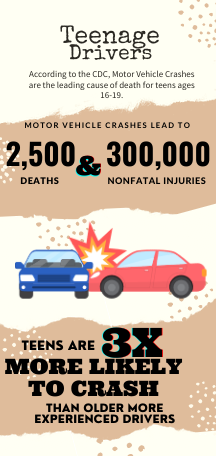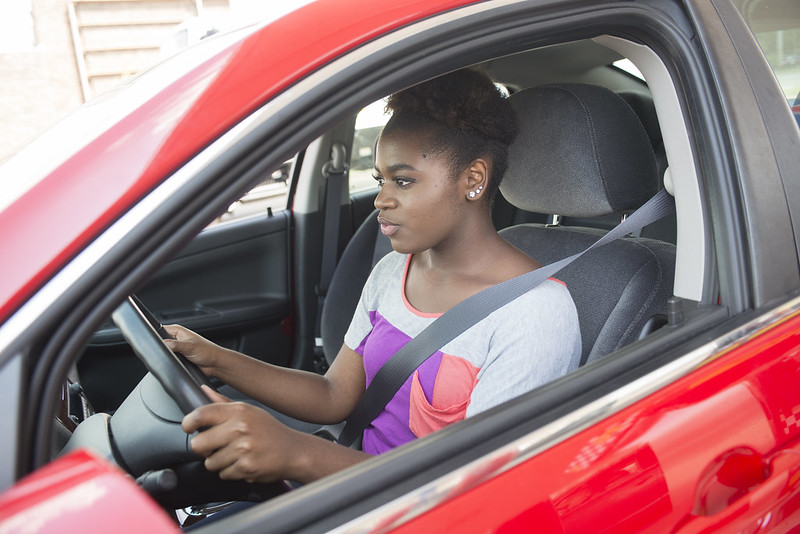Is 16 too Early? Freedom is Great, but it Comes with Greater Responsibilities Behind the Wheel
“Drivers License -Teen driver”/State Farm/flickr/CC BY 2.0
Many teens get their license after their 16th birthday or in the months that follow. According to the CDC, up until recently, “motor vehicle crashes” have been the leading cause of death for teenagers in the United States.
February 28, 2023
“A lot of people do really well on the driving test, but they’re still often horrible, unsafe drivers on the road,” said South Sophomore Caylie Perrella.
Perrella took her driving test on Dec. 16, 2022, and while she purposefully prepared, she still felt the test was generally “too easy.”
Lack of experience, distracted driving and peer pressure (mainly related to speeding) are among the top reasons for motor vehicle crashes, especially for teens. These accidents were up until recently the leading cause of death for people ages 15-20, and teens are three times more likely to crash when driving compared to older, more experienced drivers. Moreover, these accidents result in approximately 2,500 deaths and over 300,000 lethal wounds annually.
These feather-ruffling statistics have posed the important question: Should teenagers get their license at 16?
While many people believe that teens should be permitted to get their license and cars at 16, I believe otherwise. The safety requirements and laws such as the Teenage and Adult Driver Responsibility Act (TADRA) won’t guarantee a teenage driver’s safety, and though many aspiring drivers may read the GA DDS Handbook to prepare for their driving exams, traffic accidents are still the no. 2 leading cause of death for teens behind gun violence.
Often teens look forward to getting their driver’s license and a car of their own, a sense of freedom. However, most do not realize that with freedom comes great responsibility.
“Independence and responsibility don’t [always] come together for teens,” said Srividya Kalluri, an SFHS parent.

Another major concern is the number of people of all ages driving daily who failed their driving test several times but still obtained a driver’s license.
A 2013 survey found that 44% of the 500 licensed drivers studied would fail the written test if they took it today. Furthermore, approximately 50% of people fail the driving test their first time, and up to 40% of people fail the written test on their first attempt.
Potentially compounding the problem, certain states allow unlimited attempts for aspiring drivers to test. In Georgia specifically, regardless of whether one fails their driving test more than three times, the only requirement for further retakes is paying the general test fee and waiting seven days, after which point they can retake the test.
Is it truly safe, though, that people who failed their driving test multiple times still get the privilege of driving on the road, possibly endangering their life, not to mention the lives of others?
“Teenagers should definitely have more experience before getting behind the wheel and driving freely, unsupervised on the road,” SFHS Freshman Isabelle Thomas said.
The Department of Driver Services should at least make people wait a few months before re-taking the driver’s test, especially if they had failed the previous time.
Moreover, it would be very beneficial if teenagers did get their learner’s permit but had to practice driving under supervision for at least two years before receiving their driver’s license.
After gathering and analyzing all these statistics and info, I must conclude that teenagers shouldn’t get their driver’s license at the tender age of 16 years.
One small mistake, one simple mistake, is all it takes for people to die.
Although this concept can be applied to people regardless of their age or experience, that small mistake is found more often when the car is driven by a newly licensed teenager. This makes me believe that 16 years is not the optimal age to start earning one’s driver’s license.
A better method would be requiring candidates to drive for at least two years under parent supervision with a learner’s permit before earning their driver’s license and finally getting the freedom to go onto roads and control the car by themself.





